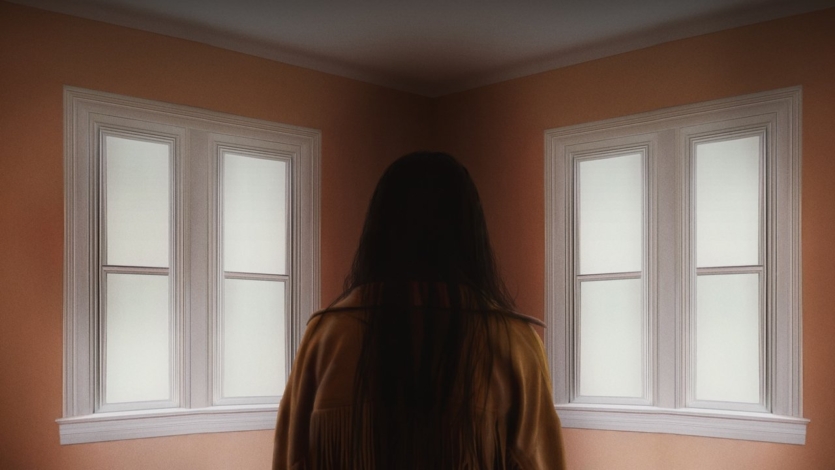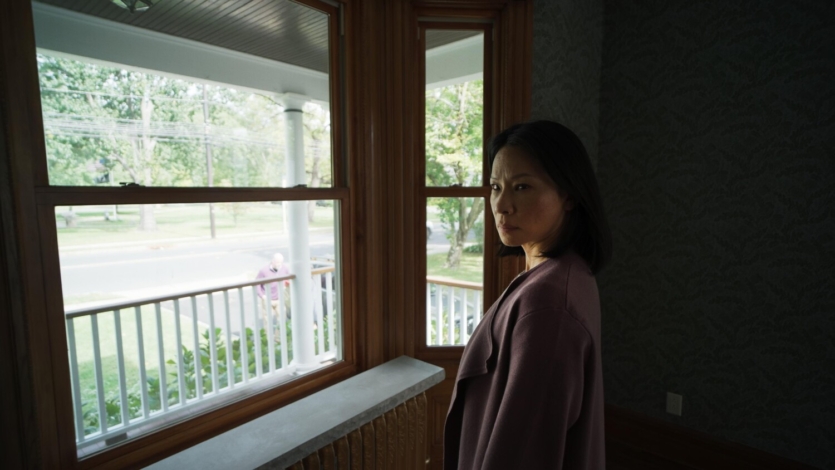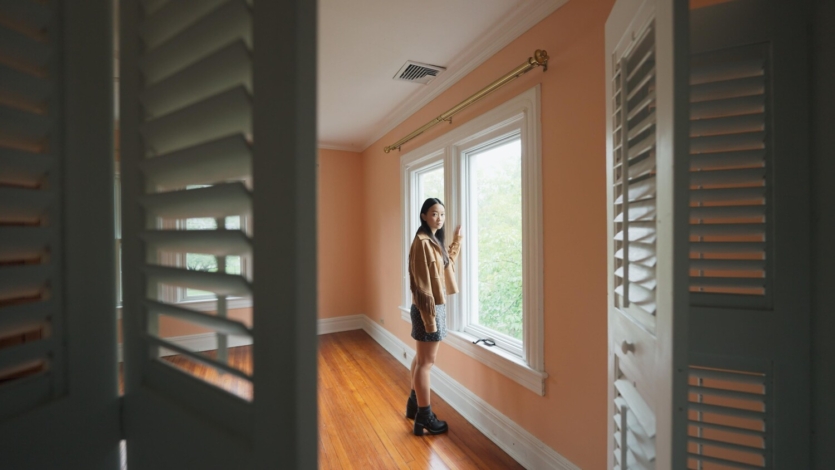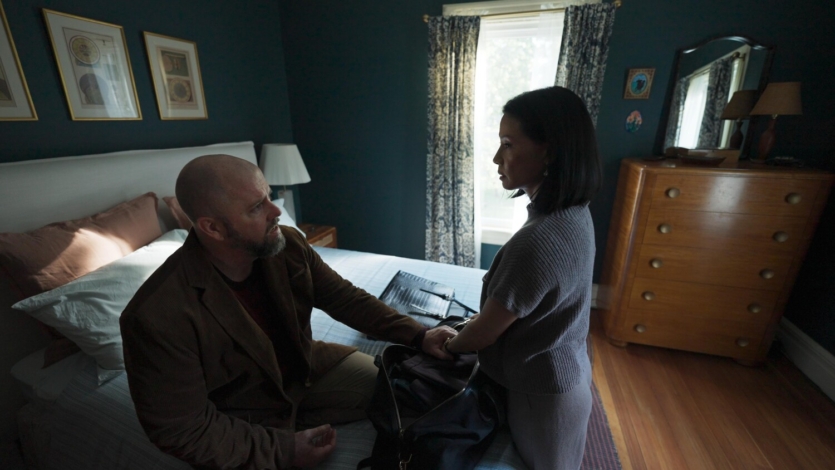
On August 28, the mystical thriller “Presence” by the famous Hollywood screenwriter David Koepp and the equally famous director Steven Soderbergh was released in cinemas. This is the third collaboration between the filmmakers in the last few years, after the thriller Kimi (2022) and the spy thriller “Black Bag”, which was released in Ukrainian theaters in early spring. What these two offer the audience in the “Presence” and what makes their film notable — we will tell you in the review below.
“Presence”
Genre a dramatic thriller about the supernatural
Director Steven Soderbergh
Starring Lucy Liu, Chris Sullivan, Callina Liang, Julia Fox, West Mulholland, Eddie Maddey, Lucas Papaelias, Benny Elledge, Daniel Danielson, Natalie Woolams-Torres
Premiere movie theaters
Year of release 2025
Website IMDb
An ordinary family, represented by Rebecca and Chris and their teenage children Chloe and Tyler, move into a nice house somewhere in a cozy suburb. Each of them has their own concerns: Rebecca, who is the head of the family, is involved in some fraudulent schemes at work; Chris seems to be thinking about divorce; Eddie, the swimmer, is just acting like a pig, and the distraught Chloe is experiencing the death of a close friend. It is the young girl who begins to feel an invisible, mysterious presence in the house, and when everyone else is convinced of this, it becomes obvious that they are not living here alone.
Soderbergh got the idea for the movie after he, his wife, and their housekeeper suggested, the couple realized that the house where they live and work is haunted by the spirit of a deceased woman, Mimi, who once lived there. “It got me thinking about how Mimi would feel about us being in her house. Is Mimi pissed at us living here?” — the director admitted. He wrote 10 pages of the script, and later David Koepp turned it into a full story and added the final twist.
“At first glance, Presence looks like something obviously creepy, at least a thriller. This is also hinted at by the fact that the film belongs to the Neon company, which is used to producing, if not “The scariest movies of the decade”, then at least “the best horror of the year” and the unremarkable connection with the family in the new home, which is a blatant genre cliché.
But Steven Soderbergh wouldn’t be himself if he produced a conventional genre sample. A platitude without any ambition to deconstruct rusty tropes. Instead, the director brazenly uses them for the sake of the author’s idea, ignoring the dubious prospect of subjecting the movie to a suspenseful genre framework.
The same thing happened in March’s Black Bag, where Soderbergh disguised a story about trust in marital relationships in the setting of a spy thriller with a corresponding intrigue. This was layered with the dangerous, but still secondary passions of secret agents. In Presence, behind the facade of a horror/thriller about a ghost in a house, there is a drama about a dysfunctional family and the tragedy that may have been one of the consequences of this dysfunctionality.
But this time, the director pays much more attention not to the content, but to the expressive and even experimental form of his pseudo-horrific brainchild.
The trick is that the story is told from the point of view of the poltergeist himself, and in the literal sense. The viewer literally sees everything through the eyes of a mysterious otherworldly entity that acts as a silent and almost invisible observer of everything that happens in the house. This adds not only a certain freshness to the show, but also completely negates any horror component. So if someone was expecting a horror movie, they will definitely feel cheated.
From a technical point of view, it looks quite fascinating: Soderbergh personally took up a handheld camera, and it seems as if Emmanuel Lubezki, with his famous “editing-free” style of filmmaking, was placed in the limited space of one house. There is, of course, editing here, but it is not what you would call usual either, because the splices suggest an association with the fact that the screen goes out between scenes and then turns back on.
At a certain point, it may resemble some kind of conventionally quest-based video game with a “loading screen” between missions, if the review is written for an IT-focused website.
But in terms of the content and, consequently, the viewer’s emotional involvement, the film raises some valid questions. For example, in an attempt to build the most realistic life of an average family, Soderbergh missed the opportunity to offer at least the least interesting characters. That is, characters whose fate we would care about. The completely monotonous, unhurried narration does not add to the interest of the viewing experience either, although the seemingly confined space suggests obvious maneuvers for tension.
Paradoxically, Presence offers a rather interesting cinematic experience, but it is not a very exciting movie. And when the camera finally gets out of the stuffy rooms of the boring building, the viewer will probably breathe a sigh of relief.




Spelling error report
The following text will be sent to our editors: